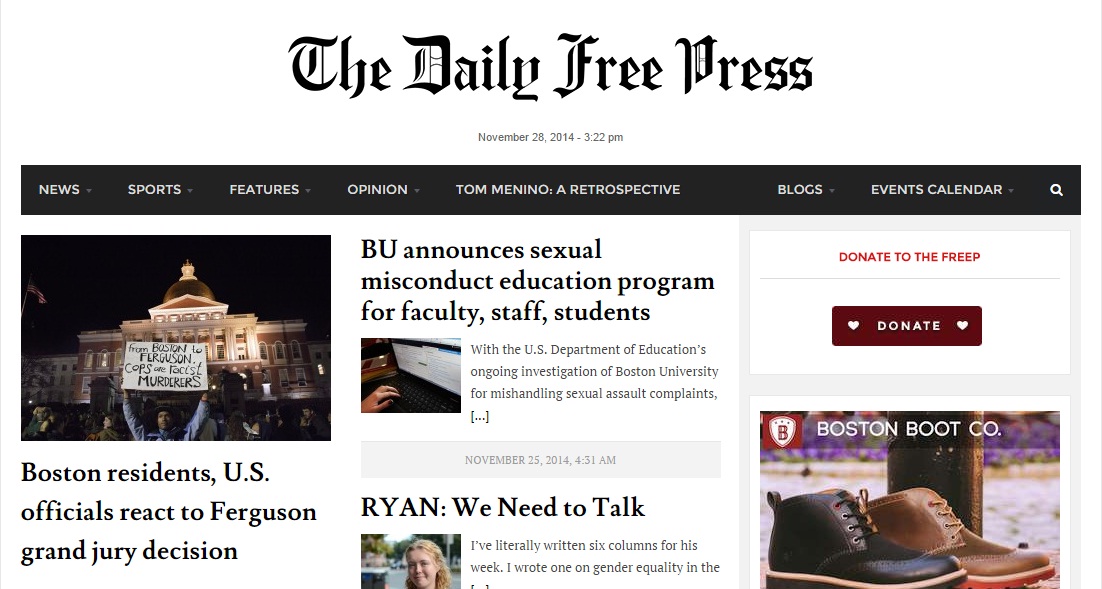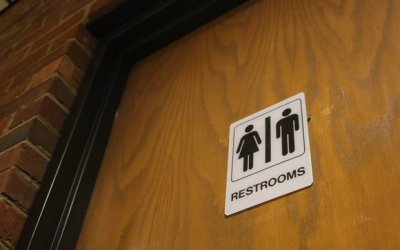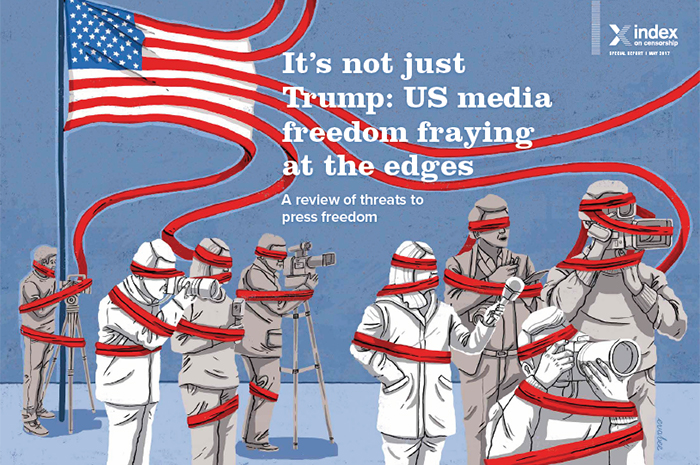Edward Snowden’s lawyer Ben Winzer talks to Index about his client and what the loss of privacy to the secret state means to the future of free expression.
CATEGORY: United States
Finances threaten independent student media
As many campus media struggle to maintain a steady revenue, Index hears from two US university papers about their work and how they finance themselves independently
Padraig Reidy: Let’s ban the word “internet”
We have to stop thinking about things happening “on the internet”, when it’s simply part of human interaction for millions
Padraig Reidy: Creeps with cameras and the first amendment
More often than not, the United States’ first amendment forces some real thought and analysis to take place in public life, writes Padraig Reidy.
Eleven free speech controversies at American universities
A Yale student group’s choice to host writer Ayaan Hirsi Ali was met with widespread protest. This is not the only recent example of a free expression dispute at a US campus. Dave Coscia writes
Padraig Reidy: When everyone is a journalist, is anyone?
With smartphones, cheap recording equipment, and free access to social media and blogging platforms, journalism has fallen into the hands of the many. This is a good thing. But one question does arise: if we are all journalists now, what happens to the privileges journalists used to claim?
US women’s university struggles to find fair balance on transgender issues
Hollins University currently forbids students from making any legal or biological step toward becoming male. Now it’s reconsidering its approach. Cathryn Asip reports
Petition calls on Met Opera to reverse Death of Klinghoffer decision
A petition campaign is calling on New York’s Metropolitan Opera to reverse a decision to cancel a simulcast of composer John Adams’ The Death of Klinghoffer.
Perfection as the enemy of the good: Weakening surveillance reform
The US Congress has made it clear by passing the USA Freedom Act that compromise is one way of doing nothing, a form of sanctified inertia. Binoy Kampmark writes
Counterpoint: Your personality is your castle
In this counterpoint to the Index position on the right to be forgotten, Graham Ginsberg argues that individuals should have the right to request search results be amended
Smears about the media made by US President Donald Trump have obscured a wider problem with press freedom in the United States: namely widespread and low-level animosity that feeds into the everyday working lives of the nation’s journalists, bloggers and media professionals. This study examines documented reports from across the country in the six months leading up to the presidential inauguration and the months after. It clearly shows that threats to US press freedom go well beyond the Oval Office.
“Animosity toward the press comes in many forms. Journalists are targeted in several ways: from social media trolling to harassment by law enforcement to over-the-top public criticism by those in the highest office. The negative atmosphere for journalists is damaging for the public and their right to information,” said Jodie Ginsberg, CEO at Index on Censorship, which documented the cases using an approach undertaken by the organization to monitor press freedom in Europe over the past three years. Learn more.











